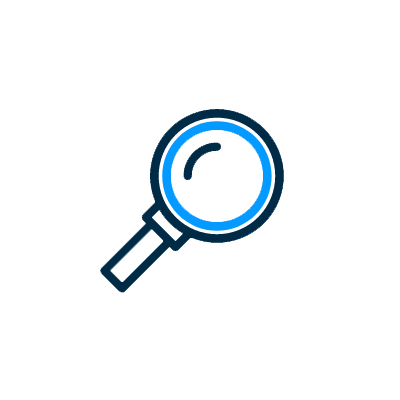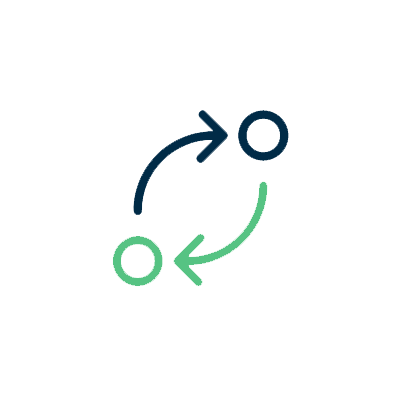
Article
What is bookkeeping, and what's the difference between bookkeeping and accounting?
Although part of the same family, there are important differences between bookkeeping and accounting. They are both key functions in every business and together, the results work to make your business more efficient.
What is bookkeeping?
Bookkeeping is recording your information and transactions so that you can monitor your incomings and outgoings. This needs to be done on a regular basis so that you can have a better idea of the financial position of the business, allow you to make informed decisions, and complete the necessary filings for your taxes.
Bookkeepers are responsible for entering the data into a business’ financial software and reconciling control accounts. The result of which enables you to summarize and present accurate, up-to-date financial information about your business.
A bookkeeper’s tasks will typically include entering customer and purchase invoices, reconciling cash, bank and control account balances, posting journals, and much more. A bookkeeper may carry out some or all of these tasks depending on their role in their business. All of this will be done through your accounting software.
Accurate and timely bookkeeping is essential so that you have precise information, and the business is filing the correct data to the IRS and other external parties.
What is accounting?
Accounting is recording the financial information but then summarizing it in a way that is useful. This allows you to interpret the data that you have for crucial decision-making.
Your accountant should be able to tell you how much profit (or loss) you are making, what your cash flow position is, and the current value of your company’s assets and liabilities. An analysis is also a key part of their job so they should be able to delve deeper into the figures to give you a better understanding of trends and variances.
The accountant will take the data produced by the bookkeeper which in most cases will be through your accounting software. The data may need adjusting to reflect the true position. This may be period-end adjustments such as accruals, prepayments, and inventory or more complex accounting. Once ready, the accountant can then present the information in the appropriate way such as management accounts or your year-end financial statements.
Differences between bookkeeping and accounting
Accounting and bookkeeping overlap in many ways and you may find that your bookkeeper or accountant will be able to carry out all or some of each. Bookkeeping is also considered part of the accounting function. However, bookkeeping is how you record and categorize your financial transactions, whereas accounting is putting that financial data to use through analysis, strategy, and planning.
To assist in understanding the differences between accounting and bookkeeping and to identify what function your business may need, we have summarized these below:
| Bookkeeping | Accounting | |
|---|---|---|
| Overall role | Keep the records of all financial transactions. | Determine the financial position and communicate the information to the relevant internal and external parties. |
| Responsibility | Ensure financial data entry is up to date and filings are made. | Monitor the broader financial health and communicate. |
| Financial information | Management and financial information are usually not prepared as a part of this process. | Part of the role is to analyze and interpret the data and then compile it into reports such as management accounts, financial statements, or budgets. |
| Skills | Required to be accurate in their work and knowledgeable about bookkeeping. Experience or training is useful. Bookkeepers’ work is usually overseen by an accountant either internally or externally. | Usually, sufficient experience and/or education are required. Understanding more complex accounting matters is essential but can be supported by an external accountant. |
| Decision making | Will not provide you with the information you require for decision-making. | Able to produce the information and analysis you require so you can make informed business decisions. |
We make bookkeeping simple for you
At TaxAssist Advisors, we have experienced bookkeepers and use cloud accounting systems including Quickbooks.
If you are interested in hearing more about how we can make bookkeeping easier or about our many other services to help your business thrive, inquire online here to book your free, no obligation consultation.
*Our network of TaxAssist Advisors is made up of independently owned and operated franchised locations. While many are, not all locations are operated by CPA members and some of the services listed here may not be offered by practices which are not operated by a CPA. Inquire online here to book your free, no obligation consultation.
Date published Jul 8, 2022 | Last updated Jul 8, 2022
This article is intended to inform rather than advise and is based on legislation and practice at the time. Taxpayer’s circumstances do vary and if you feel that the information provided is beneficial it is important that you contact us before implementation. If you take, or do not take action as a result of reading this article, before receiving our written endorsement, we will accept no responsibility for any financial loss incurred.
Sign up for our newsletter
Receive important tax news suitable for business owners and self-employed professionals.
Choose the right accounting firm for you
Running your own business can be challenging so why not let TaxAssist Advisors manage your tax, accounting, bookkeeping and payroll needs? If you are not receiving the service you deserve from your advisor, then perhaps it’s time to make the switch?

Local business focus
We specialize in supporting independent businesses. Each TaxAssist Advisor runs their own business, and are passionate about supporting you.

Come and meet us
We enjoy talking to business owners and self-employed professionals who are looking to get the most out of their accounting firm. You can visit us at any of our locations, meet with us online through video call software, or talk to us by telephone.

Switching is simple
Changing accounting firm is easier than you might think. There are no tax implications and you can switch at any time in the year and our team will guide you through the process for a smooth transition.